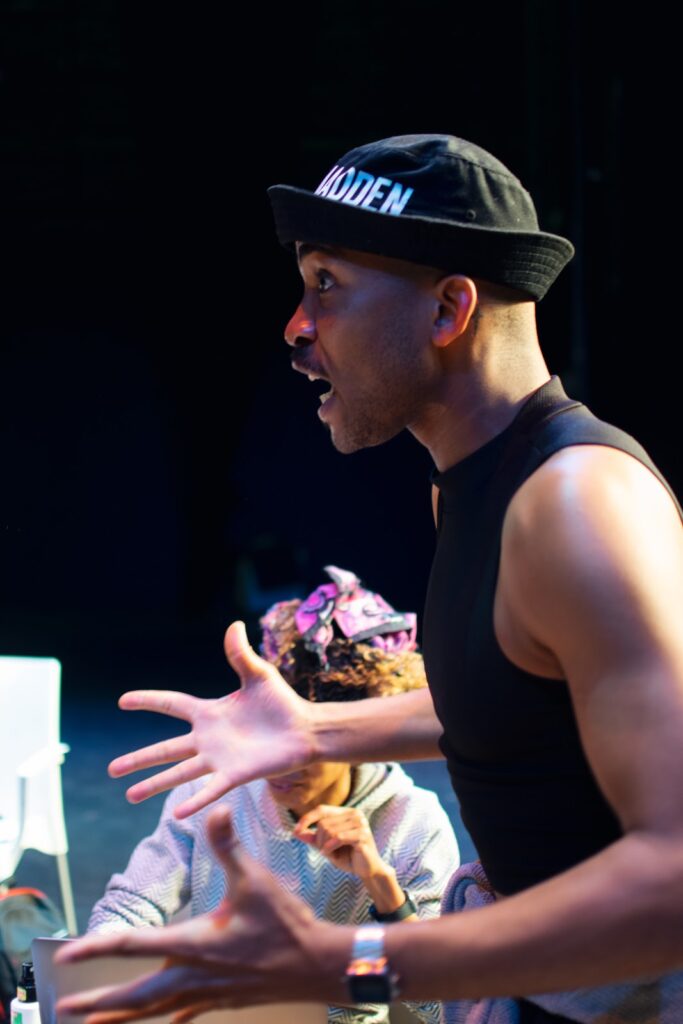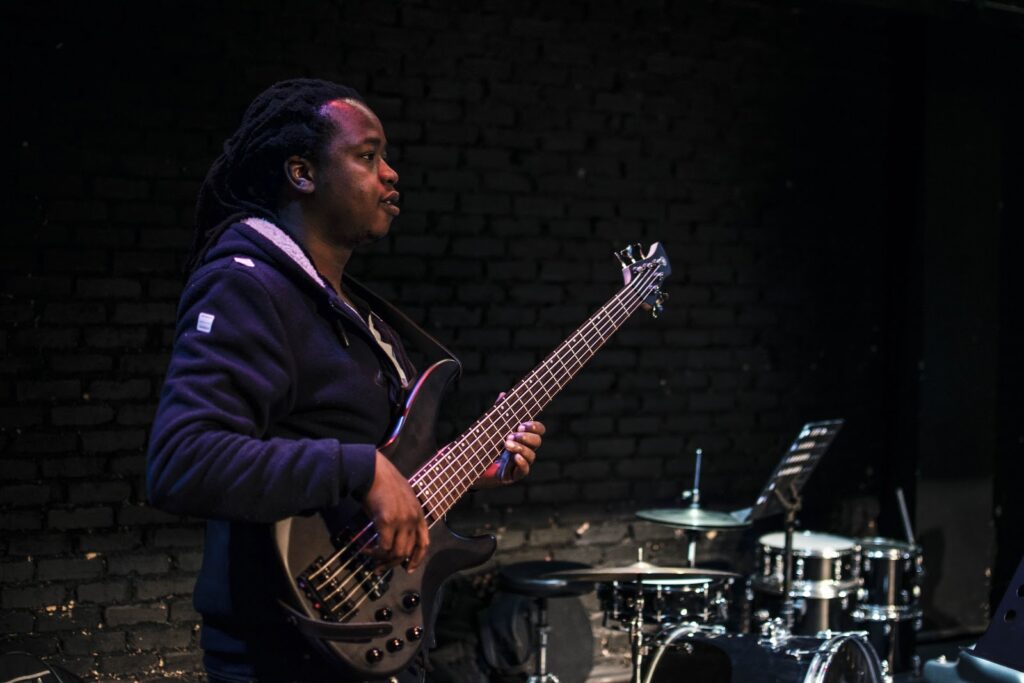Composer Sne Dladla is the musical director of Hlakanyana. (Photo: Madevu Entertainment)
Out of struggle comes growth, and the creators of Hlakanyana — a musical drama in the making — believe it has all the ingredients to be a socially relevant hit.
Hlakanyana — a cunning, unethical creature, depicted in animal or human form — is one of the best known characters in African folklore, and, despite the pandemic, the production team have made laudable progress, workshopping the musical online. “This pandemic is a struggle but we got stuck in, multi-tasking as musicians, songwriters, scriptwriters, actors and producers to get Hlakanyana off the ground,” says co-producer Zolani Shangase.
He and Michael William Wallace, both of Madevu Entertainment successfully applied for funding to develop the production, which is being co-produced with University of Johannesburg (UJ) Arts & Culture. Janice Honeyman, who is directing, is well acquainted with Shangase and Wallace, who performed in her production of Show Boat. They are the recipients of an Arts & Culture Trust (ACT) music development grant funded by Nedbank, a National Arts Council grant, and they also have an artistic residency at UJ Arts & Culture.
In the production, Hlakanyana is the long-awaited son of the chief of a village, but instead of being a uniting force, Hlakanyana causes dissent and devastation.
“We are situating Hlakanyana in an Afrofuturistic world to interrogate difficult contemporary subjects, including corruption, gender-based violence, lack of mentorship and the lack of worthy people for succession,” Shangase says.
The production team recognises the unique vehicle that African mythology offers to musical drama and theatre. “It’s also really exciting to be writing music for Hlakanyana, which adds a whole new dimension to the story,” says Wallace.
 Producer and music Supervisor Zolani Shangase getting the band and workshop cast up to speed with the music. (Photo: Madevu Entertainment)
Producer and music Supervisor Zolani Shangase getting the band and workshop cast up to speed with the music. (Photo: Madevu Entertainment)
“We used the ACT grant to fund the music development in level one, and we were able to workshop this … with seven musicians and eight vocalists, led by our musical director Sne Dladla. The music, with lyrics by Shangase and Dionne Song, is authentically South African combined with musical theatre elements that drive the story forward.”
One of the songs is called Black and Bruised, Black and Used. Shangase says: “The lyrics interrogate how black people have historically been used and abused; whether it is women or black bodies in general, we find ourselves crying for something better — the mother is crying for her kids and what their future holds; the father is journeying to the mines to go and work and he asks his kids not to cry as he loves them and he will return.”
The music is integrated with the storyline, which is narrated by the matriarch character to all the people of the world.
“She tells them about a village that was once ruled by a bombastic chief; and the story is told in such a way that it can appeal to children, while at the same time it represents the toxic masculinity that is so prevalent in our country,” Wallace says. “The chief doesn’t have a child and he goes to his ancestors and performs a ritual to be given a boy child, but because of his greed and self-righteousness, he is cursed with the man-child Hlakanyana, who, even prior to his birth, calls out to his mother to demand his exit from her womb.
Hlakanyana personifies self-interest and greed. In original folklore, he tricks a leopard mother into letting him look after her cubs while she goes out in search of food for them. While she is away, he eats the cubs, all the while tricking the leopard into believing that they are fine. In the musical , Hlakanyana tries to steal knowledge from the all-knowing willow tree as he wants to keep it for himself. He stuffs it into his backpack, but it falls out and it can then be shared by all.
The creative team began working on the production before Covid-19 and their approach was to have Hlakanyana developed as a UJ Arts & Culture faculty of art, design and architecture interdisciplinary project for 2020. The team intended to work with second-year students across eight departments, who would have been tasked with building the sets, creating the costumes, developing the marketing materials and collaborating in all aspects of the production. This was impossible once lockdown hit.
 Viwe Mkizwana is one of the seven musicians who workshopped the production’s music. (Photo: Madevu Entertainment)
Viwe Mkizwana is one of the seven musicians who workshopped the production’s music. (Photo: Madevu Entertainment)
“Everyone has been forced to go digital,” says Wallace, “and so we decided to workshop the script and production digitally, together with our production team and actors, and a range of people from different disciplines popping in to contribute. Janice supervised the workshops, enriching the process with her phenomenal depth of directing and storytelling experience, and also with the calm she brought to the group, as everyone was naturally unfamiliar with the online workshop process.”
They recorded all their online workshops and Pieter Jacobs, the head of the UJ Arts & Culture, conducted research on the process.
“We want to create a template of this new way of working that can grow our industry,” says Shangase. The workshops were two to three hours long over several months. “In general they went well, some days were a nightmare with connectivity issues, which we just have to deal with,” says Wallace.
The team is now preparing some of the musical tracks for marketing purposes and is busy with the final refining of the script. They are hoping to be able to have full live production workshops in the theatre soon, but they will have to see how things go with Covid-19.
“We would ideally like to be able to put on the production next year, but the pandemic has taken this out of our hands. Once we are able to get going, we really want it to be a huge hit in South Africa and globally,” Wallace says.